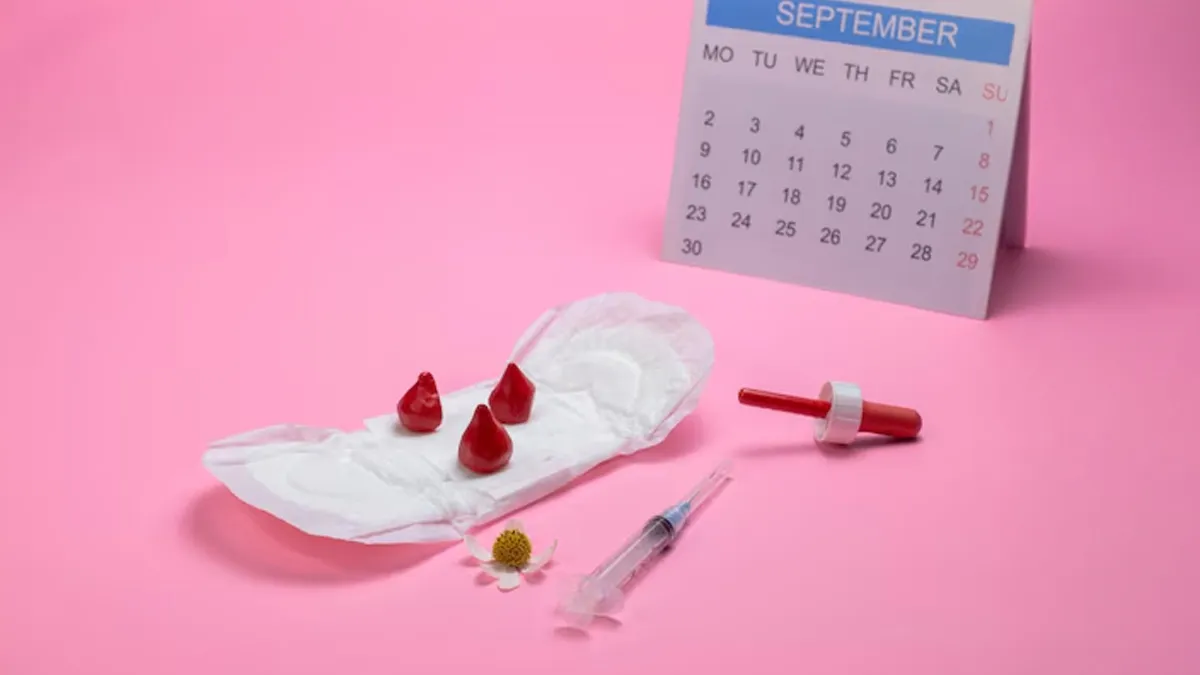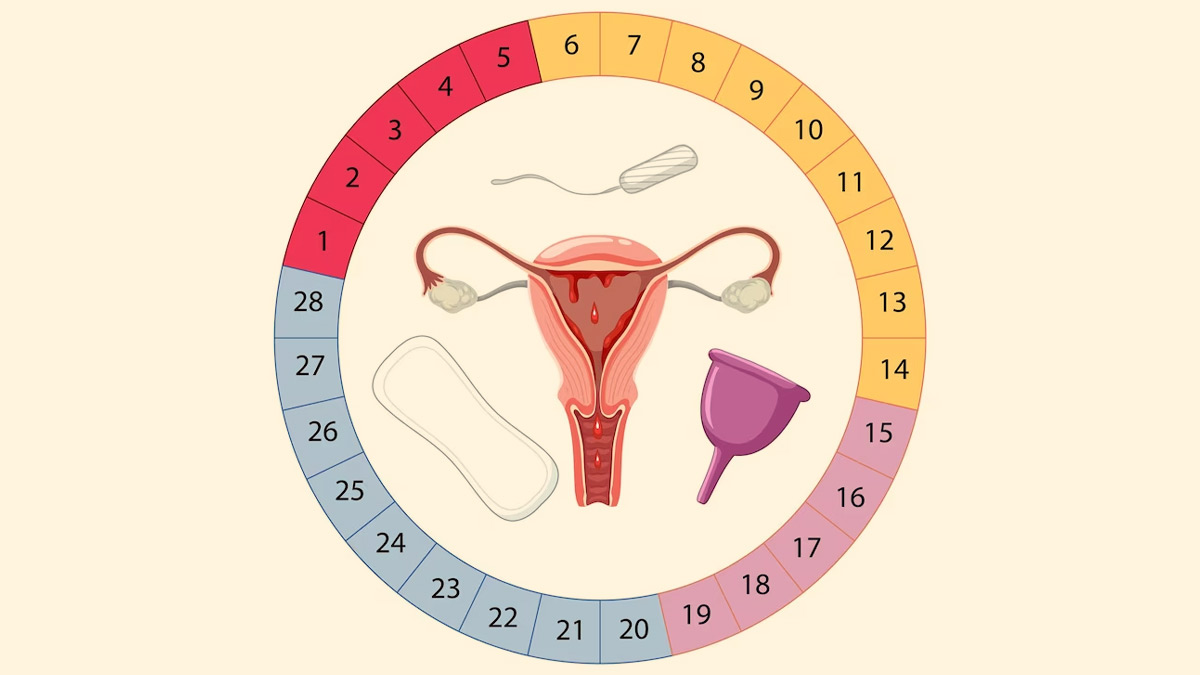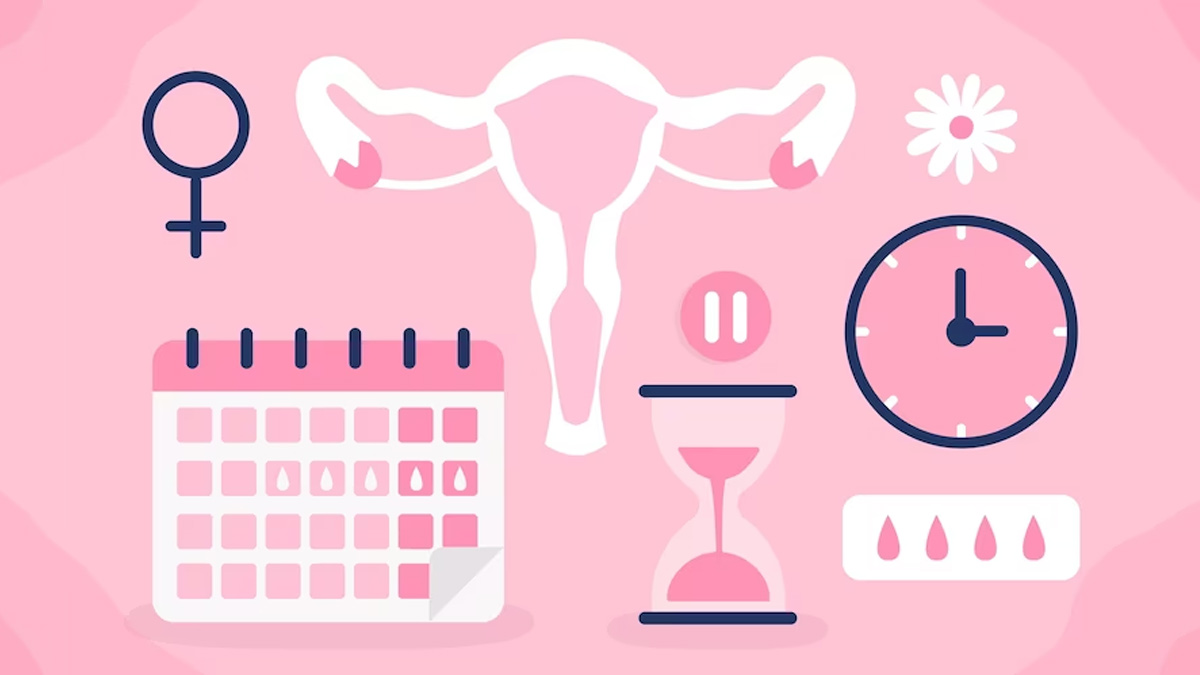
If you’re over 40 and noticing heavier periods with blood clots, you’re not alone. Medical experts reveal that many women experience changes in their menstrual cycle during this phase of life. However, heavy menstrual bleeding or menorrhagia with clots can sometimes signal an underlying medical issue. We spoke to our expert, Dr Bhumesh Tyagi, Consultant, General Medicine and Physician, Shardacare, Health City, Noida, and here is how he explained to us the typical reasons for heavy periods with clots in women aged 40 and above, signs to look out for, and best options for treatment. Here is what he shared with us.
Table of Content:-
What Constitutes a Heavy Period With Clots?
According to Dr Tyagi, heavy periods are different from one woman to another, but they often include the following symptoms:
- Soaking a pad or tampon every hour
- Passing blood clots that are larger than a quarter
- Periods that last longer than seven days
- Having to double up on menstrual supplies
- Menstrual bleeding that disrupts daily activities
Although occasional clots are normal, regular or large menstrual clots can point to abnormal bleeding.
Top Medical Causes of Heavy Periods With Clots in Women Over 40
As per our expert, a few medical causes of heavy periods with clots in women over 40 include:
1. Perimenopause and Hormonal Imbalance
Estrogen levels change erratically during perimenopause. This may make the lining of the uterus thicker than normal, resulting in heavy bleeding and large clots. Common perimenopausal symptoms are:
- Irregular periods
- Hot flashes and night sweats
- Mood swings and insomnia
Hormonal changes are a major reason for heavy bleeding over 40, but not the only reason.
Also Read: What Is The 10-10-10 Rule To Manage Blood Sugar Levels? Doctor Explains How It Works

2. Uterine Fibroids
Fibroids are benign tumours that develop inside or outside the uterus. Fibroids commonly develop in women in their 40s and can worsen with changing estrogen levels. Symptoms of fibroids include:
- Heavy or prolonged menstrual flow
- Blood clots during menses
- Pelvic pressure or pain
- Urination with frequency
Fibroids are a leading cause of menorrhagia in women during midlife.
3. Adenomyosis
Endometrial tissue invades the uterine wall in adenomyosis, leading to pain and heavy bleeding. Symptoms of note are:
- Heavy, painful periods with clotting
- Bloating and cramping
- Tender, enlarged uterus
Mostly goes undiagnosed and may increase with advancing age.
4. Endometrial Hyperplasia
This condition leads to the uterine lining becoming too thick, generally as a result of excess estrogen and low progesterone. It may raise the risk of endometrial cancer if not treated. Symptoms of endometrial hyperplasia:
- Heavy or spotting between periods
- Postmenopausal bleeding
- Clots or prolonged bleeding
Early diagnosis is important, particularly for women approaching menopause.
5. Blood Clotting Disorders
Heavy periods with clots can sometimes be caused by bleeding disorders, e.g., von Willebrand disease or platelet dysfunction. Look for signs such as:
- Easy bruising
- Frequent nosebleeding
- Heavy postoperative or postpartum bleeding

6. Thyroid Disorders
Both hypothyroidism and hyperthyroidism can affect menstrual bleeding and lead to heavier periods. The symptoms can include:
- Fatigue or sleeplessness
- Weight gain or loss
- Changes in mood
- Irregular menstrual cycles
A straightforward blood test can measure thyroid hormone levels.
When to Consult Your Doctor About Heavy Periods With Clots
It's worth getting medical care if you have:
- Soaking through a pad/tampon for one to two hours
- Large clots
- Periods that last more than seven days
- Severe dizziness or fatigue (potential anaemia)
- Intermenstrual or postmenopausal bleeding
Dr Tyagi highlighted that never delay these symptoms, as early assessment avoids complications.
How Are Heavy Periods With Clots Diagnosed?
If you get to your doctor, here’s how your physician might diagnose heavy periods with clots:
- Pelvic ultrasound to rule out fibroids or polyps
- Tests on blood to determine levels of hormones or clotting problems
- Endometrial biopsy if abnormal tissue growth is suspected
- Pap smear to exclude cervical problems
Remember that the objective is to determine the cause and establish a customised treatment plan.
Treatment for Heavy Menstrual Bleeding Over 40
Dr Tyagi explained that treatment varies based on the underlying cause but can include:
- Hormone therapy (e.g., birth control pills, hormone IUDs, HRT)
- Tranexamic acid or NSAIDs to minimise bleeding
- Iron supplements for anaemia
- Minimally invasive procedures (e.g., endometrial ablation, hysteroscopy)
- Surgery, such as myomectomy or hysterectomy, for extreme cases
- Always consult with your physician about the risks, benefits, and long-term solutions.
Bottomline
Heavy periods that include clots aren't inconvenient; they can be an indication of hormonal disorder, uterine disease, or even more severe health issues. If you're older than 40 and you're experiencing changes in your menstrual flow, speak with your healthcare provider. Early treatment can enhance your quality of life, avoid complications such as anaemia, and allow more serious diseases to be detected early.
FAQs: Heavy Periods With Clots in Your 40s
Q: Are blood clots during menstruation normal after 40?
A: Small clots are normal, but heavy or recurring clots can be a sign of a medical problem.
Q: Can menopause lead to heavy bleeding with clots?
A: Yes, heavy bleeding and clotting may occur during perimenopause due to hormonal changes.
Q: What conditions lead to heavy periods in midlife women?
A: The most frequent causes include fibroids, adenomyosis, thyroid disease, endometrial hyperplasia, and bleeding disorders.
Also watch this video
How we keep this article up to date:
We work with experts and keep a close eye on the latest in health and wellness. Whenever there is a new research or helpful information, we update our articles with accurate and useful advice.
Current Version
